This post may contain affiliate links. For more information, read my disclosure policy.
Want to take your baking from good to great? I’m showing you how to use a kitchen scale for baking so you can make the best cakes, cupcakes, pies, and other baked goods. A scale is one of the best ways to improve your baking because it makes it so much easier to measure ingredients accurately.
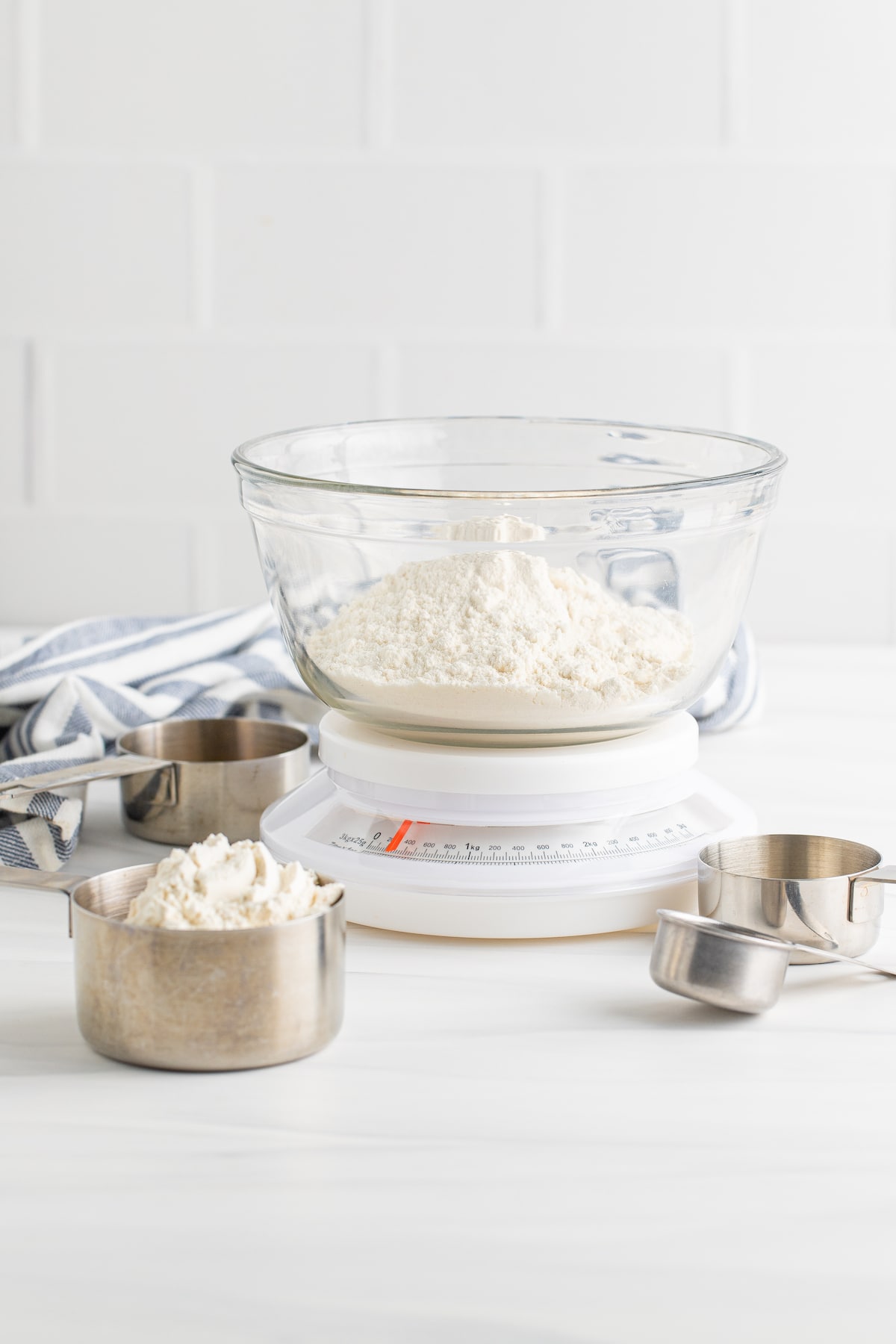
Table of Contents
Why Measure Baking Ingredients
Using a kitchen scale to measure ingredients will take your baking to a whole new level. It will also reduce stress because there is nothing more stressful than a dessert you need for a party collapsing because the flour measurement was off.
Since I wrote my cookbook I’ve been measuring EVERYTHING and it’s SO much easier – and more consistent. I’m working hard to update all my posts with metric measurements.
Professional Bakers Use a Scale
Go into any professional kitchen or bakery you will find kitchen scales. The pros use them because it is the most precise way to measure ingredients. If you’re churning out cupcakes, cookies, and cakes to sell, you need them to be the same and turn out perfectly every time. A kitchen scale plays a big part in that!
As a home baker, maybe you’re not selling your cupcakes, but if you’ve ever worried about something not turning out right for a party or potluck can take a lot of that stress away.
Everyone Measures Ingredients Differently
I always recommend the spoon and level method for measuring flour and other ingredients. That’s because how you fill a measuring cup will impact how your recipe turns out.
Dipping the cup in the flour instead of spooning it will yield very different amounts. Even the spoon and level method isn’t always precise, which is why I recommend a scale. It just takes away all the variables that can change the amount of flour.
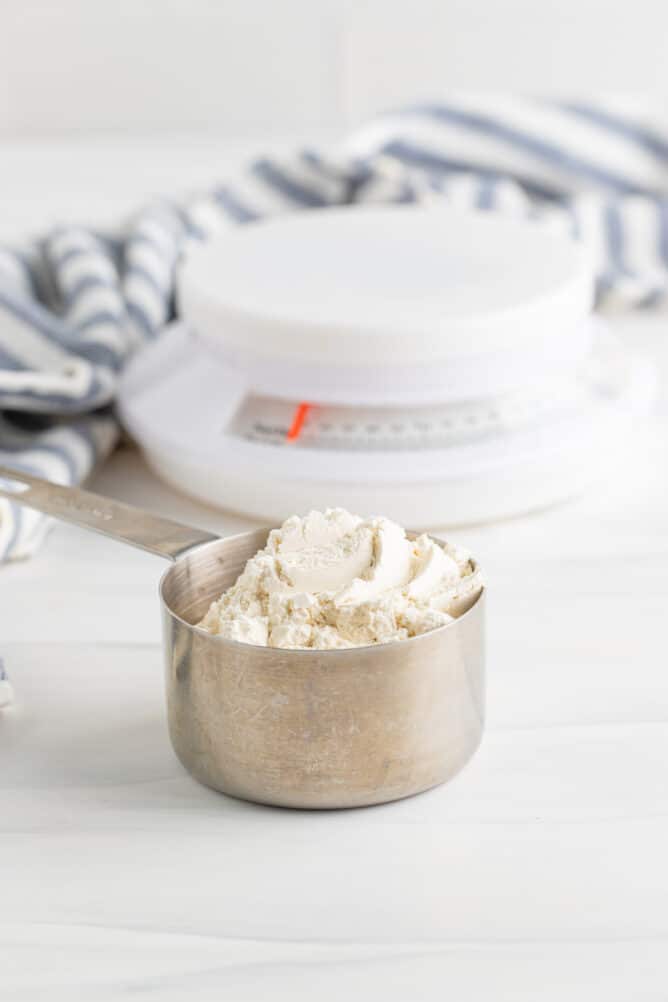
How to Use a Kitchen Scale for Baking
Using a scale means you can measure all of the ingredients in the bowl without pulling out all of your measuring cups and spoons.
- Place your mixing bowl on top of the scale. You will see the weight of the bowl on the display. There is a “tare” button that will zero out the weight. Basically, telling the scale to pretend there’s nothing on it.
- Pour the first ingredient in the bowl until the display shows the weighted amount. Zero it out again (tare) and add your next ingredient.
You can do this will all of the ingredients you need weighted measurements for – zeroing out after each so you can get an accurate measure. No cups or spoons are required! You can also easily switch between ounces and grams if needed.
A Kitchen Scale is Not Just for Baking!
Even if you don’t bake all the time, you can use your scale to measure all kinds of ingredients. It’s great for pasta, meat, cheese… basically any ingredient that is measured by weight. It also helps if you’re practicing portion control or counting calories – you can weigh out precisely the amount you want.

Kitchen Scale Recommendations
I’ve tried a lot of different scales, and these are the ones I recommend:
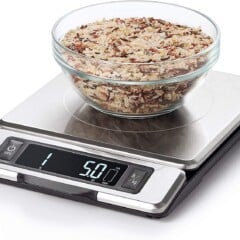
OXO Digital Scale
This is the one I use all the time for all my recipes. It holds up to 11 pounds and is very precise. I love how the front comes out when you’re weighing something big so the numbers aren’t obscured.
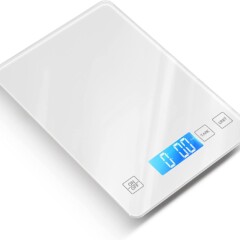
Nicewell Food Scale
This is my second favorite – I used it all the time for liquid measuring because it has fluid ounces as one of the units.
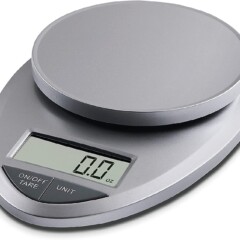
EatSmart Precision Pro
This is a great budget option and it works great, especially if you’re also measuring your meals.
I keep my kitchen scale out on the counter at my house, and I use it all the time. I promise it makes a difference! Using a kitchen scale for baking will make life so much easier – your desserts and baked goods will thank you for it!
Ever wondered how to use a kitchen scale for baking? Learn how and why you should be using a kitchen scale instead of or in addition to measuring cups!
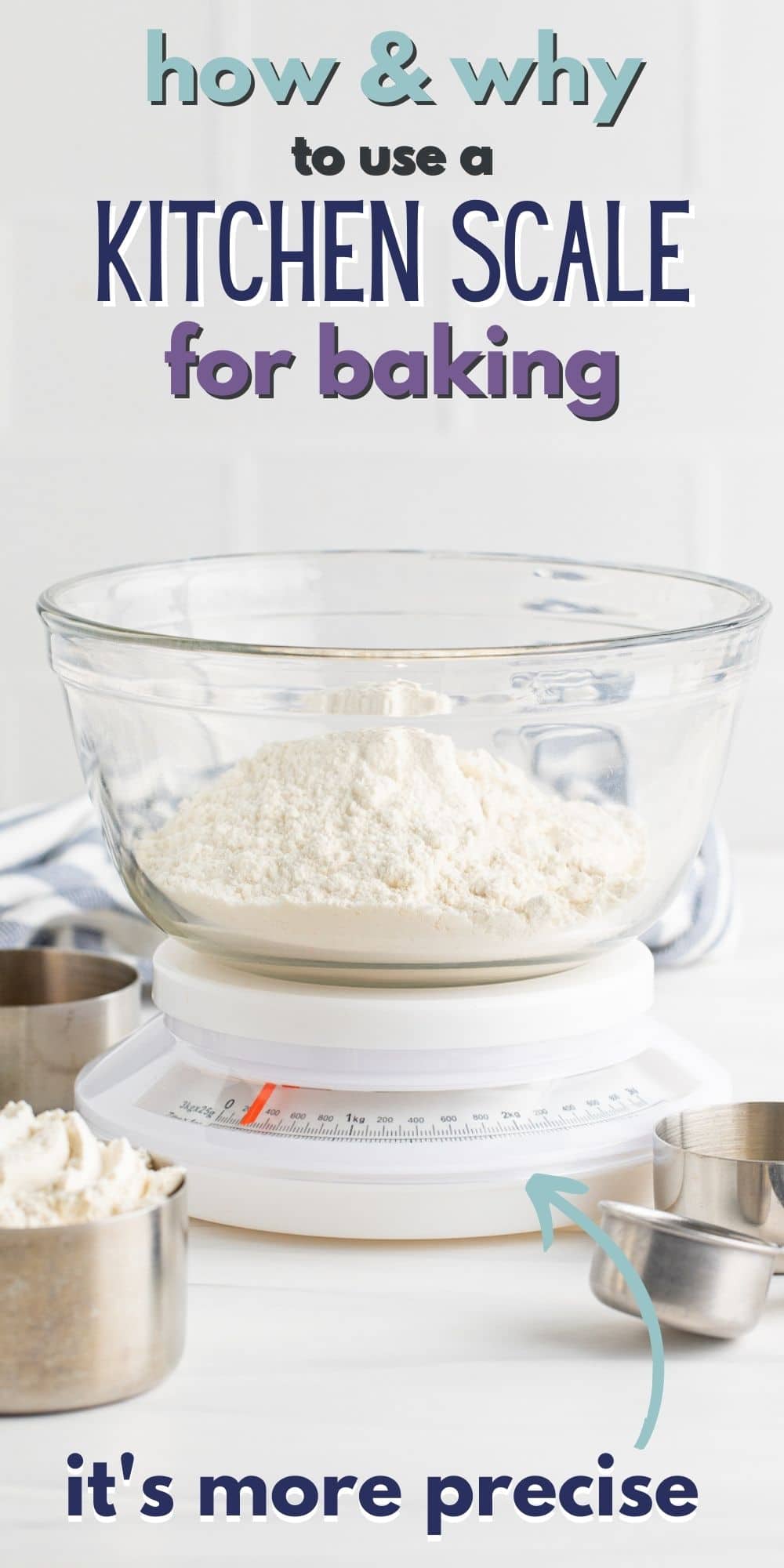
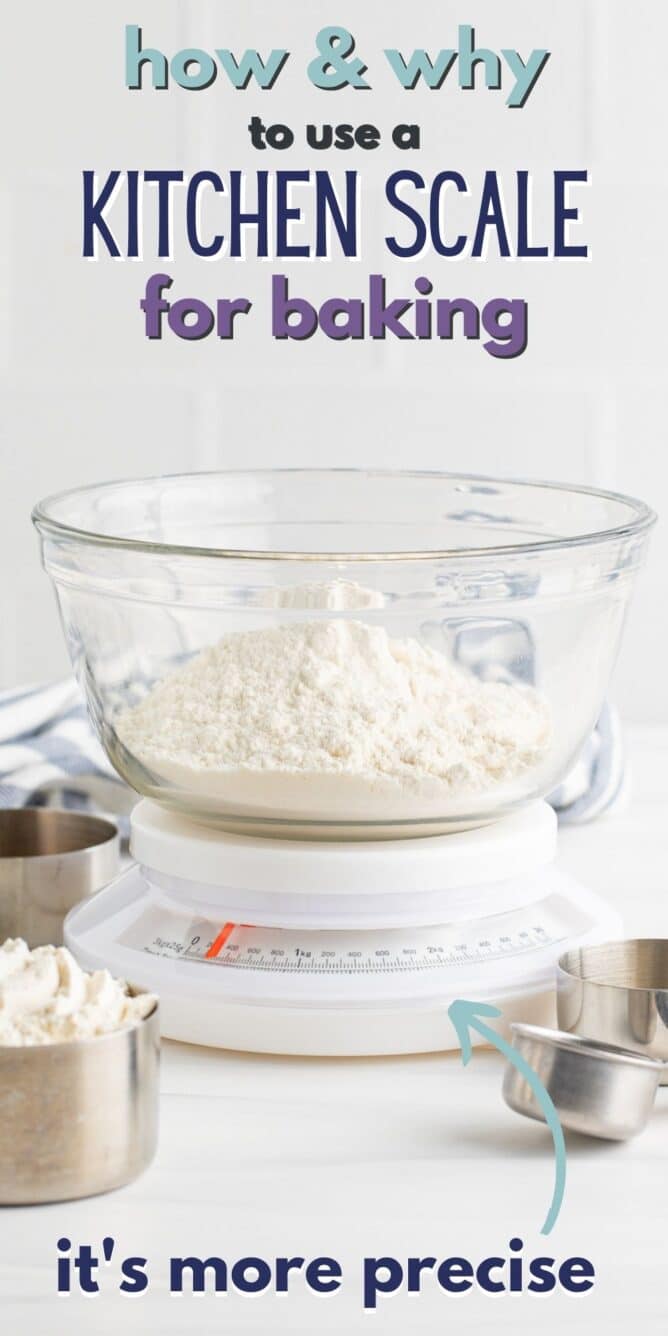
I agree with your enthusiasm for weighing ingredients. Now if I could find gram weight for the baking items measured with spoons – i.e – 1/2 tsp baking soda. But spoons are easy to hand wash.
Can’t wait for your cookbook! Know it will be a star among cookbooks.
I just got a kitchen scale but haven’t used it yet. My question is – if you are adding the ingredients on top of each other, what do you do if you add too much of something? How do you remove it if it’s on top of other ingredients?
Featured In